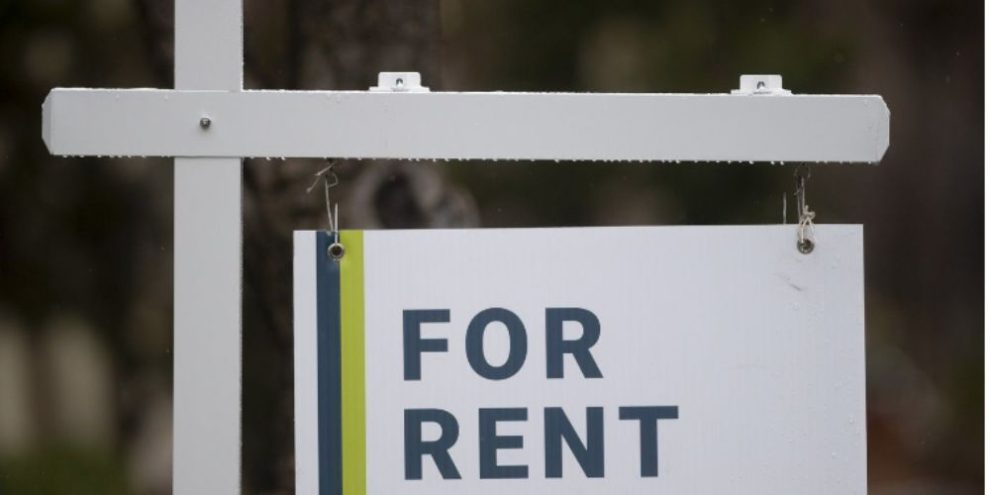
By Ian Bickis
Renters face daunting barriers in their attempts to build wealth as they're forced to devote an increasing share of their income to keeping a roof over their head, said an RBC report Thursday.
The report by economist Carrie Freestone adds to a growing body of research painting a stark picture of the wealth divide between renters and homeowners.
It notes that since 2010, homeowners have seen their net worth grow from nine to 13 times household disposable income, while for renters, net wealth grew from three to 3.5 times income over the same period.
The faster-growing wealth of homeowners is part of a longer-term trend that saw home ownership drive nearly half of wealth accumulation over the past three decades, the report said.
Renters hoping to make the jump to ownership, and the benefits it brings, face rising hurdles, said Freestone in the report.
"Canadian renters are getting squeezed more than homeowners, making home ownership an even more distant dream," she said.
"This threatens renters’ path to accumulating wealth — which could exacerbate inequality over the longer term."
One of the biggest challenges is that renters are having to spend more of their overall income on housing.
In 1999, renters devoted about 25 per cent of take-home pay to housing costs compared with 23 per cent for homeowners. But in 2022, renters spent 29 per cent of their pay on housing, compared with 21 per cent for homeowners.
The gap has widened even though renters' incomes have risen at the same pace as homeowners', said Freestone. Meanwhile, homeowners are also accumulating home equity with their housing payments.
The higher proportion comes as rents keep increasing. The average asking rent price in Canada was $2,193 a month in February, a 10.5 per cent jump year-over-year, according to Rentals.ca and Urbanation.
Rising rents mean less money to put aside for a down payment. Last year, renters didn't even have enough for the basics.
Renters collectively spent nearly nine per cent more than they earned in disposable income in 2023, while homeowners saved seven per cent of their take-home pay, the RBC report said.
"The third quarter of 2023 was the turning point when both homeowners and renters saw declines in net wealth. But renters have undoubtedly been hit the hardest," said Freestone.
The report follows one from TD last October that also highlighted the stark divide in wealth accumulation between renters and homeowners.
The TD report led by Beata Caranci found the average net worth of homeowners born between 1955 and 1964 had reached more than $1.4 million in 2023, 6.3 times higher than the wealth of non-homeowners born during the same time.
The $1.2 million wealth gap between the two had grown from a gap of just under $500,000 in 2005.
"Wealth inequality is really a narrative that differentiates Canadians who are homeowners versus those who are not," said Caranci in the report.
The divergent paths of baby boomers who were homeowners versus renters is likely to play out worse for young people today, she said.
"The current generation of young Canadians is likely to not just repeat, but accentuate the narrative of wealth inequality across housing lines with affordability now at its worst level in decades."
She said that there are many long-standing policies that disproportionately benefit homeowners, including the capital gains exemption, the partial GST rebate on new home ownership, the first-time homebuyers tax credit, renovation tax credits and others.
"The savings and investing landscape is so heavily skewed toward housing because the housing system itself is designed to perpetuate inequality between homeowners and non-owners, from zoning that prioritizes single-family homes to tax policies that subsidize ownership."
Changing those policies could shift the landscape, but suggestions to do so have proven to be deeply unpopular, said Jim Dunn, a professor at McMaster University and director of the Canadian Housing Evidence Collaborative.
"The kinds of measures that could be taken have been ruled out by many governments," said Dunn.
Even a modest capital gains tax would help cool the market and make housing act less like an asset, he said. As it stands, rising home prices make more people want to get into the market.
With such measures off the table, the government could do more to boost social housing to relieve pressure for lower income households, he said. The federal government has started to ramp up funding in this area, but after decades of not enough construction across the provinces, Canada's four per cent share of social housing lags the OECD average of seven per cent.
Overall, there need to be a deeper look at the fundamentals of a system where wealth accumulation is so tied to housing, rather than rising income, he said.
"We've essentially decided to have a system where instead of paying people wages, we'll give them wealth increases," said Dunn.
"And we ought to be thinking about ways that we can change that, because we're in a situation now where people can't get access to home ownership."
Banner image: THE CANADIAN PRESS/Adrian Wyld
This report by The Canadian Press was first published March 14, 2024.





